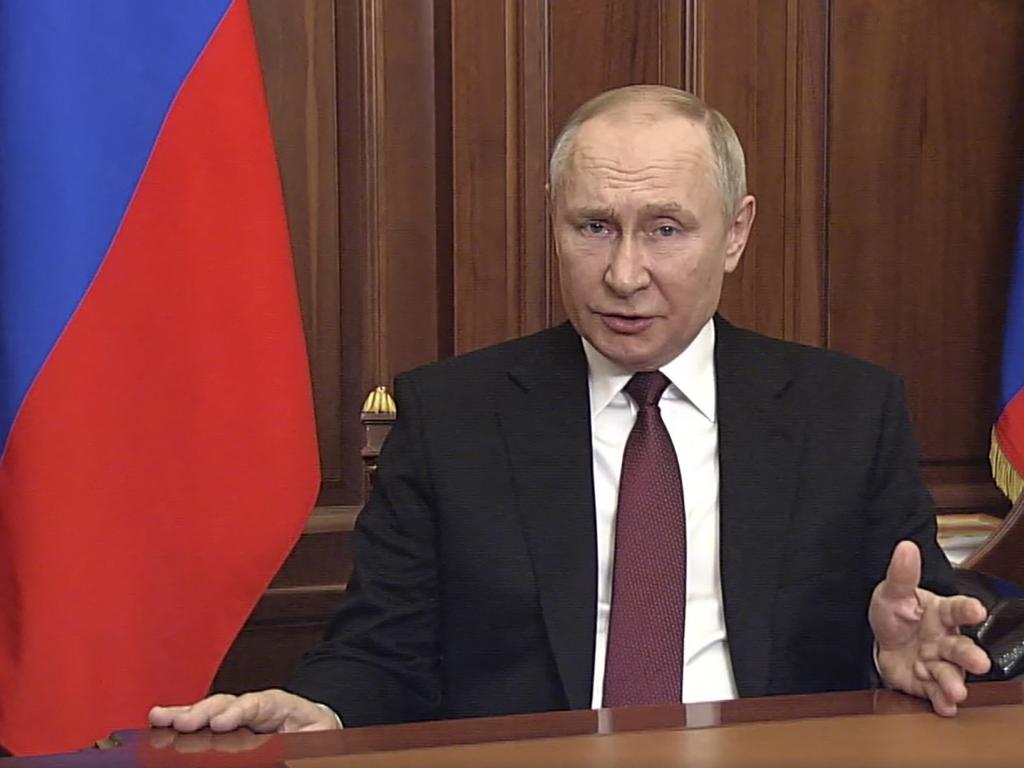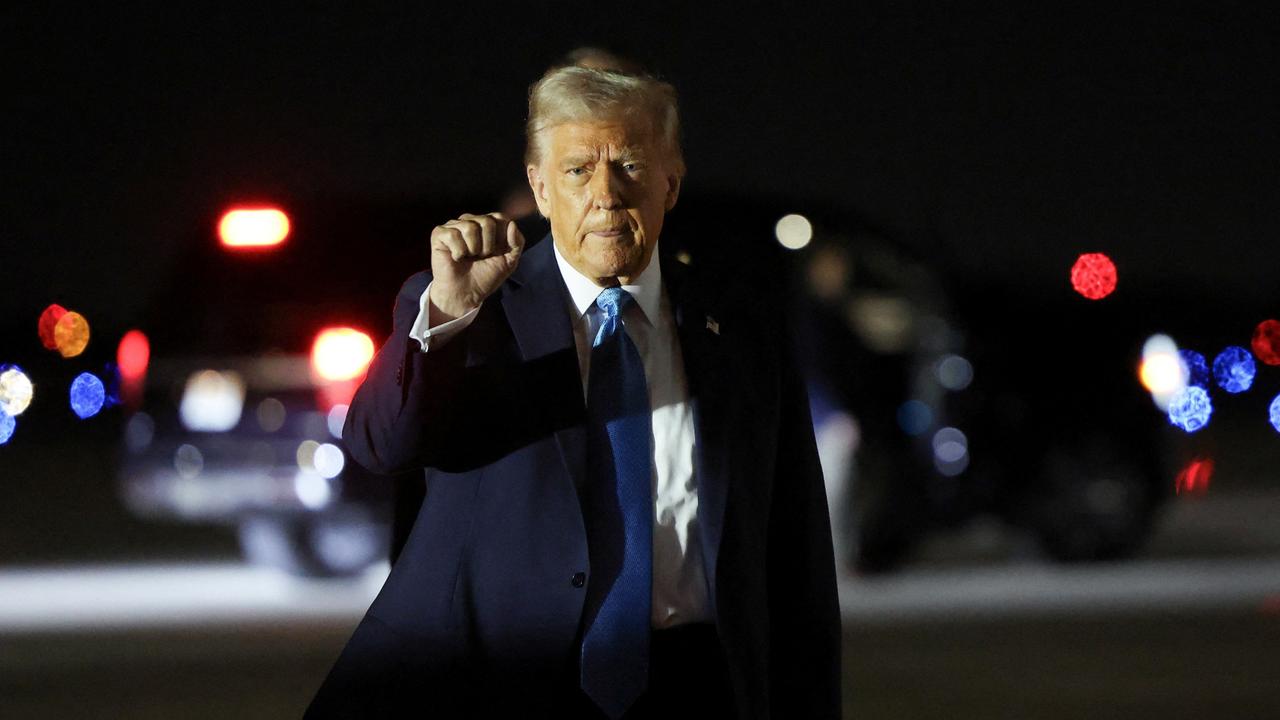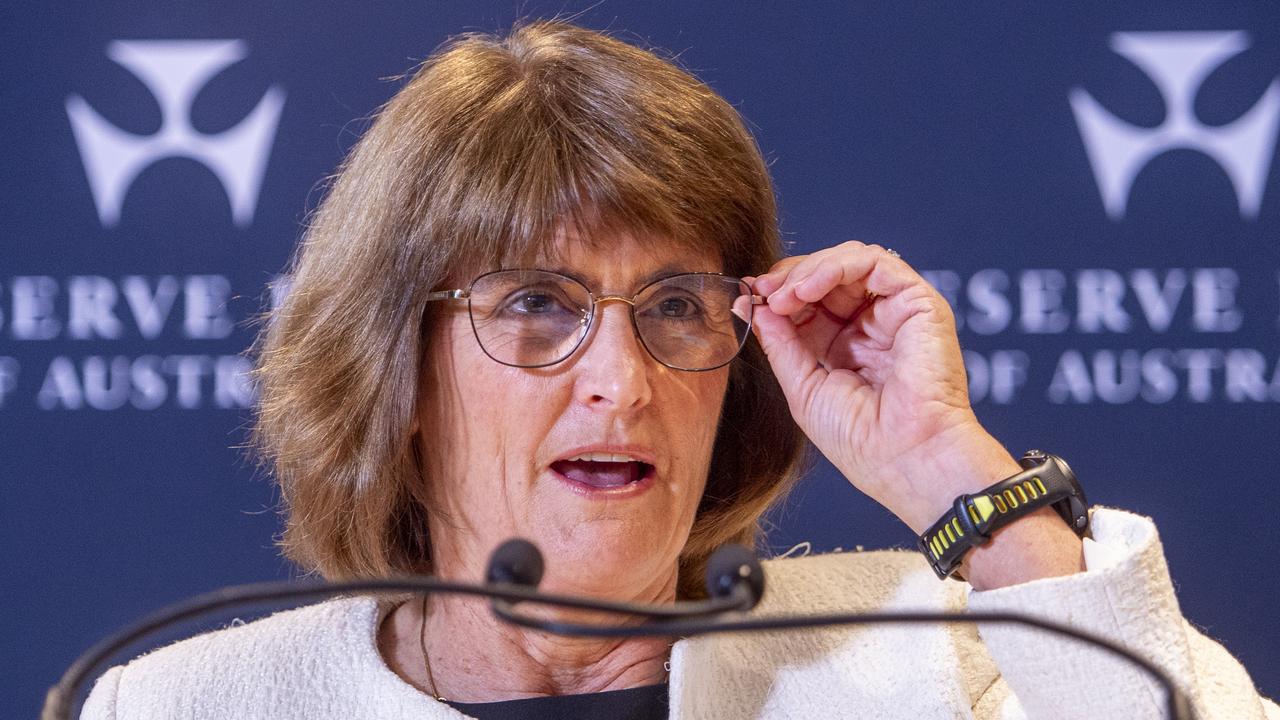Ukraine crisis kicks off new superpower struggle among US, Russia and China

Russia’s audacious military assault on Ukraine is the first major clash marking a new order in international politics, with three major powers jostling for position in ways that threaten America’s primacy.
The challenges are different than those the U.S. and its network of alliances faced in the Cold War. Russia and China have built a thriving partnership based in part on a shared interest in diminishing U.S. power. Unlike the Sino-Soviet bloc of the 1950s, Russia is a critical gas supplier to Europe, while China isn’t an impoverished, war-ravaged partner but the world’s manufacturing powerhouse with an expanding military.
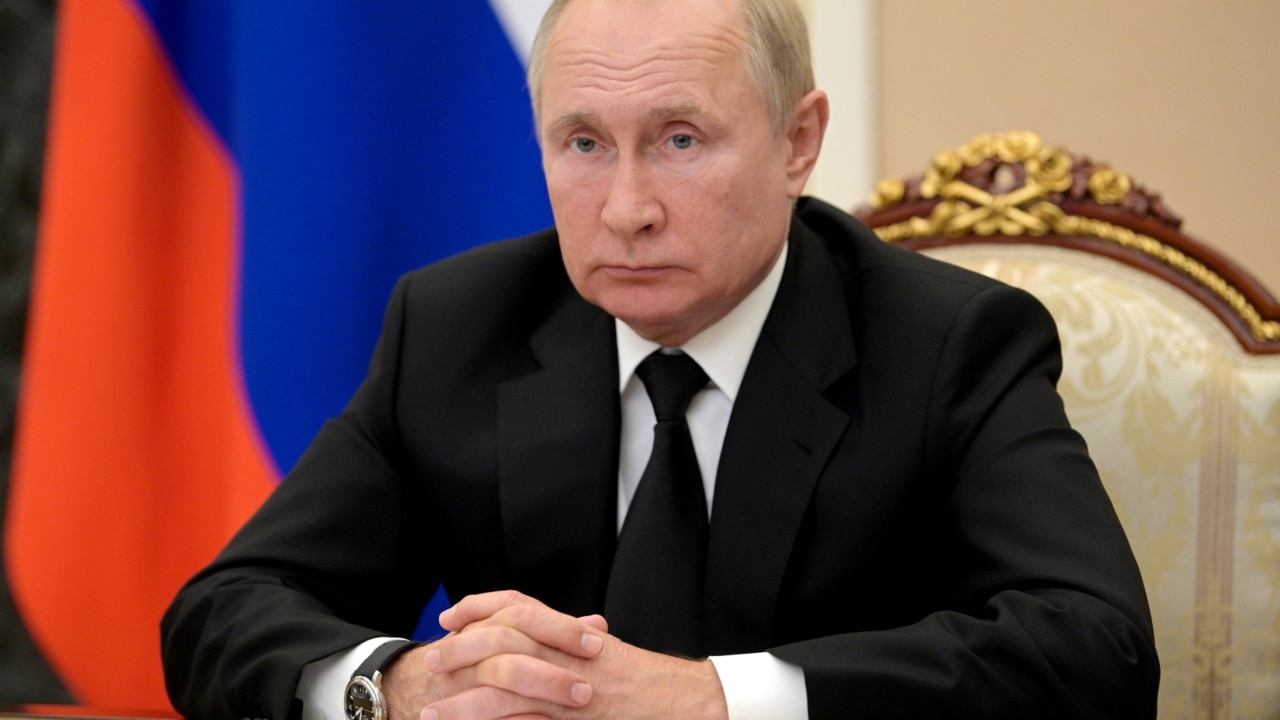
In deploying a huge force and on Thursday ordering what he called a “special military operation,” Russian President Vladimir Putin is demanding that the West rewrite the post-Cold War security arrangements for Europe and demonstrated that Russia has the military capability to impose its will despite Western objections and economic sanctions.
To do this, Mr. Putin shifted military units from Russia’s border with China, showing confidence in his relations with Beijing. The two powers, in effect, are co-ordinating to reshape the global order to their advantage, though their ties stop short of a formal alliance.
This emerging order leaves the U.S. contending with two adversaries at once in geographically disparate parts of the world where America has close partners and deep economic and political interests. The Biden administration now faces big decisions on whether to regear its priorities, step up military spending, demand allies contribute more, station additional forces abroad and develop more diverse energy sources to reduce Europe’s dependence on Moscow.
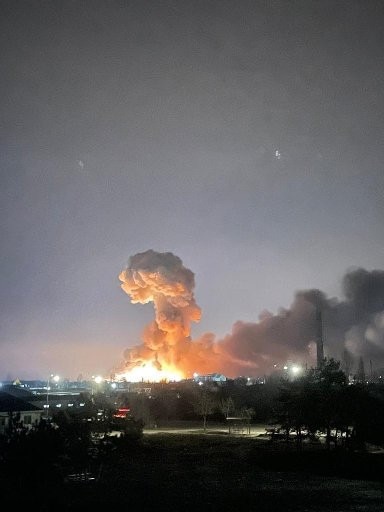
“We all thought we were looking at a Europe whole, free and at peace indefinitely,” said Michele Flournoy, who served as the Pentagon’s top policy official during the Obama administration. “We knew that Russia would conduct grey zone operations and that Putin would use his KGB playbook to create instability on his periphery. But a wholesale invasion of a sovereign country to reorient its government is a different moment.”
“And we’re seeing that while Beijing doesn’t really like Putin’s tactics, they’re willing to band together as authoritarian states against the Western democracies,” Ms. Flournoy added. “We are going to see more and more of that in the future.”
The U.S. predicament in part grew out of moves by Washington at the end of the Cold War. As the globe’s sole superpower, the U.S. pushed to promote democracy around the world and expand the North Atlantic Treaty Organisation, the key Cold War military alliance in Europe, to include former members of the Kremlin-dominated Warsaw Pact and some former Soviet republics. That responded to the decades-old yearnings of East European nations to be free of Moscow’s dominion.
Mr. Putin, however, saw his rivalry with the West as a zero-sum game and set about moving Russia toward its Soviet-era prominence, with greater say over the nations on its periphery.
China’s Communist Party leadership also saw pro-democracy protest movements in former Soviet republics as U.S.-engineered plots that could ultimately be used against Beijing. In response, China’s leadership tightened controls at home while redoubling a military build-up — trends that accelerated when Xi Jinping took charge a decade ago. When pro-democracy protesters rose up in Hong Kong, Mr. Xi imposed harsh security laws, brushing off agreements his predecessors made giving autonomy to the former British colony and international financial centre.
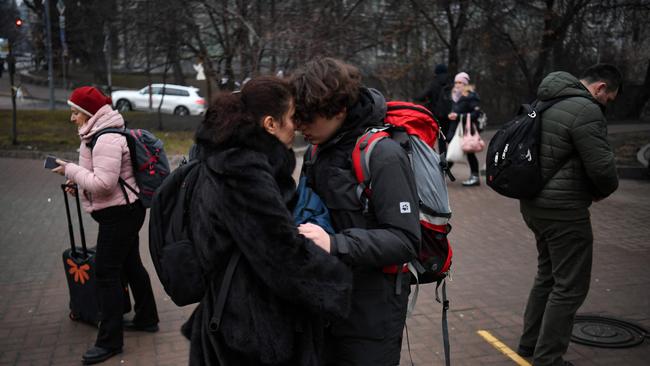
For much of the past decade, the U.S. security establishment began taking note of what the Pentagon in 2015 called the “re-emergence of great power competition” and shifted from its emphasis of counter-terrorism operations in the Middle East and Southwest Asia.
In setting priorities as the Pentagon seeks to retool for future conflicts, Defence Secretary Lloyd Austin has repeatedly cast China as the “pacing challenge” while Russia was seen as the lesser longer-term danger.
The projection matched President Biden’s priorities even as he pledged to buttress the world’s democracies. He took office wanting to focus on the pandemic, the economy and other domestic issues, promising a “middle class” foreign policy that would deliver returns for Americans after costly wars in Iraq and Afghanistan. Managing relations with Moscow would help the administration concentrate on the military, economic and technological competition with Beijing.
Toward this end, Mr. Biden held a summit meeting in June with Mr. Putin to forge what the White House called a “stable, predictable” relationship. To put guardrails on relations with Moscow, Mr. Biden agreed to a five-year extension of the New START treaty limiting long-range U.S. and Russian nuclear arms. The White House also directed the Pentagon to explore using Russian bases in Central Asia to prevent the re-emergence of a terrorist threat in Afghanistan after the withdrawal of U.S. troops.
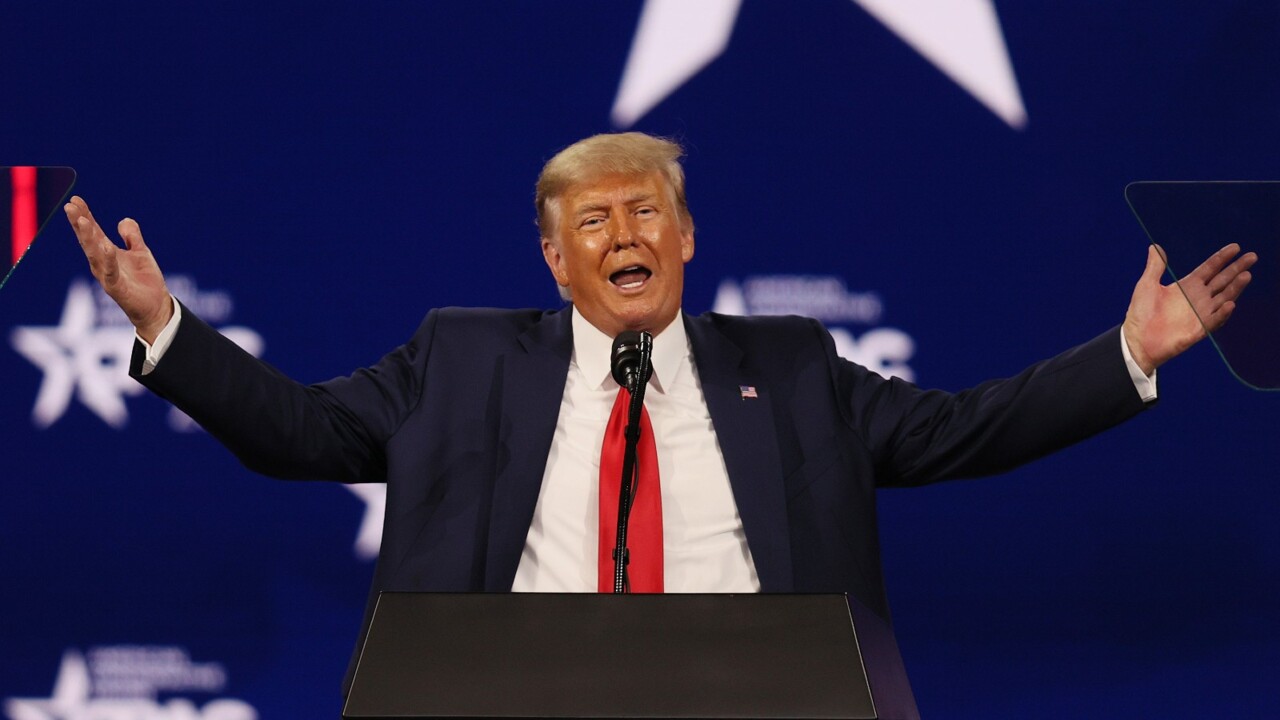
Mr. Putin, however, tried to take advantage of Washington’s focus elsewhere to pursue his agenda of bringing Belarus and Ukraine into Moscow’s sphere of influence, most notably with Russia’s major military build-up on the doorstep of the U.S.’s European allies and its new assault on Ukraine.
Even with annual defence budgets that soared over $700 billion, coping with an urgent Russian-generated crisis while preparing for a Chinese threat whose peak is still years away presents an enormous challenge for the Pentagon.
“The United States is particularly at risk of being overwhelmed should its military be forced to fight on two or more fronts simultaneously,” said a congressionally mandated study of the Pentagon’s strategy that was issued in 2018 by former military officers and defence officials. One of them, Kathleen Hicks, is now President Biden’s deputy Defence Secretary directing the agency’s programs and plans.
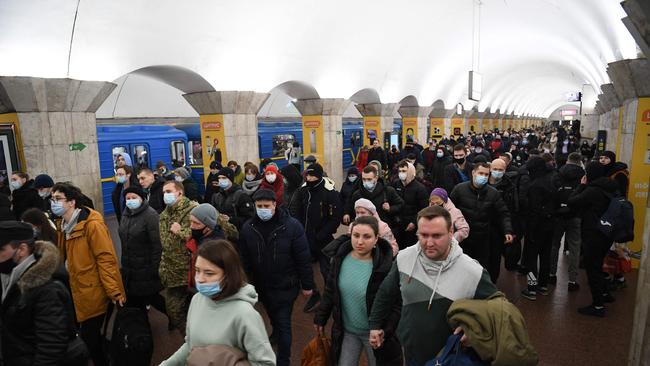
The crisis is already leading the U.S. to move more troops to Europe and will likely prompt it to rethink defence spending levels and perhaps even the size of its armed forces. The era of nuclear reductions may come to an end as the U.S. military establishment argues for a large enough nuclear arsenal to deter both Russia’s formidable nuclear weaponry and China’s rapidly growing nuclear forces, which aren’t limited by any arms-control agreement.
Having to counter both Russia and China will also lead the Biden administration to lean more heavily on the alliances the U.S. has used to augment its global power. When Messrs. Putin and Xi held a summit in Beijing earlier this month, a 5,300-word statement they released afterwards took aim at NATO as well as U.S. alliances with Australia and others in Asia for seeking “unilateral military advantages to the detriment of the security of others.”
China has reinforced military outposts in the South China Sea, a vital global sea lane. It is also constructing a nascent network of bases around the world that could be used by its rapidly expanding navy, piggybacking on port facilities being built as part of its Belt and Road infrastructure initiative. The U.S. is trying to prevent the Chinese navy from gaining its first foothold on the Atlantic, pressuring Equatorial Guinea to spurn Beijing’s advances.
“The United States is going to have to get used again to operating in multiple theatres simultaneously — not just militarily, but in terms of psychology and foreign-policy making,” said Eliot Cohen, a military historian at the Center for Strategic and International Studies think tank.
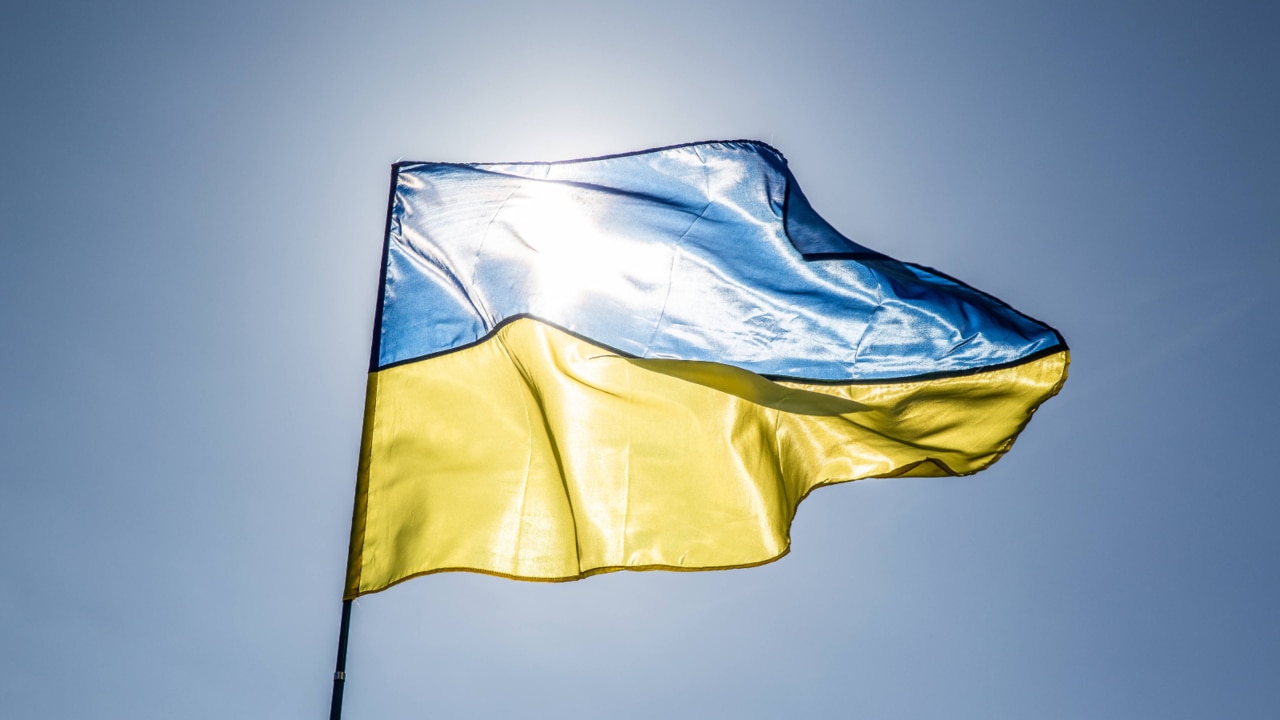
As the administration tries to sort through the new challenges, the Pentagon has delayed the release of its national defence strategy intended to spell out plans to deter the U.S.’s great power rivals and its new review of what nuclear weapons to develop and the range of threats they should deter. Already, debates are emerging among U.S. defence experts on whether the Pentagon should give equal weight to the twin challenges from Beijing and Moscow or focus more on the Pacific.
Beyond the military, the new confrontation with Moscow might also accelerate a further fracturing of economic globalisation. China and the U.S. are trying to unravel supply chains for critical technologies. Should the West impose crippling sanctions on Russian banks and major companies, Moscow is likely to become more reliant on Beijing, which has issued a digital currency and is building a payments system separate from the West’s.
Energy is also likely to become an even greater focal point for national security, owing to Europe’s dependence on supplies of natural gas from Russia, which accounted for 29% of Europe’s natural-gas market last year.
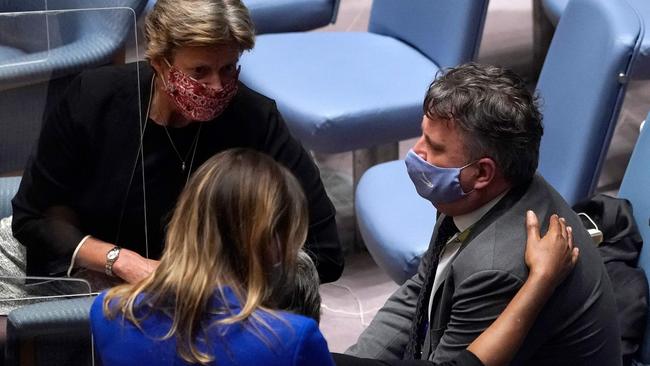
“It is already ending the amnesia about the importance of energy security,” said Daniel Yergin, vice chairman of research firm IHS Markit. “It means a new emphasis on diversification of energy sources for Europe and a new look at U.S. domestic and international energy policies.”
Advocates of using energy as a geopolitical tool say Washington should promote investment in U.S. oil and natural gas and approve new LNG export terminals and pipelines in the U.S.
In Europe, the crisis has already rocked NATO, with its secretary-general, Jens Stoltenberg, saying the alliance needs to reconfigure itself to deal with a “new normal in European security.”
At a security conference in Munich over the weekend, Vice President Kamala Harris and other leaders cited the unity that the U.S. and its European partners have displayed in the face of Russia’s actions.
In the short run, NATO officials say, that may mean sending new battle groups to southeastern Europe and beefing up allied forces in Poland and the Baltic States on NATO’s eastern flank. The 1997 NATO-Russia Founding Act precludes the alliance from permanently stationing additional substantial combat forces on the territory of its new Eastern and Central European members, but could now be repealed.
A recent poll by the European Council on Foreign Relations noted most Europeans see the Ukraine crisis as a broader threat to Europe. Some current and former officials, however, worry that the alliance’s solidarity could fray in the years ahead as it debates the need for greater military spending and wrestles whether its military ties with Georgia might stir new confrontations with Moscow.
In June, NATO is planning to adopt its new “strategic concept” at a summit meeting in Madrid, which will outline the broad principles of how the alliance plans to deal with security challenges in the decade ahead. It will come as a report by the Alphen Group by former officials and other experts urges that European members of the alliance and Canada provide for 50% of NATO’s minimum military requirements by 2030 so the U.S. can focus more on deterring China.
“Everybody’s unified right now and outraged about what the Russians are doing,” said Alexander Vershbow, a former U.S. ambassador to NATO who also served as the alliance’s deputy secretary-general from 2012 to 2016. “But when we get down to making longer-term commitments to strengthen NATO’s defence posture and potentially revisit nuclear issues, it could become very divisive.”
The Wall Street Journal

